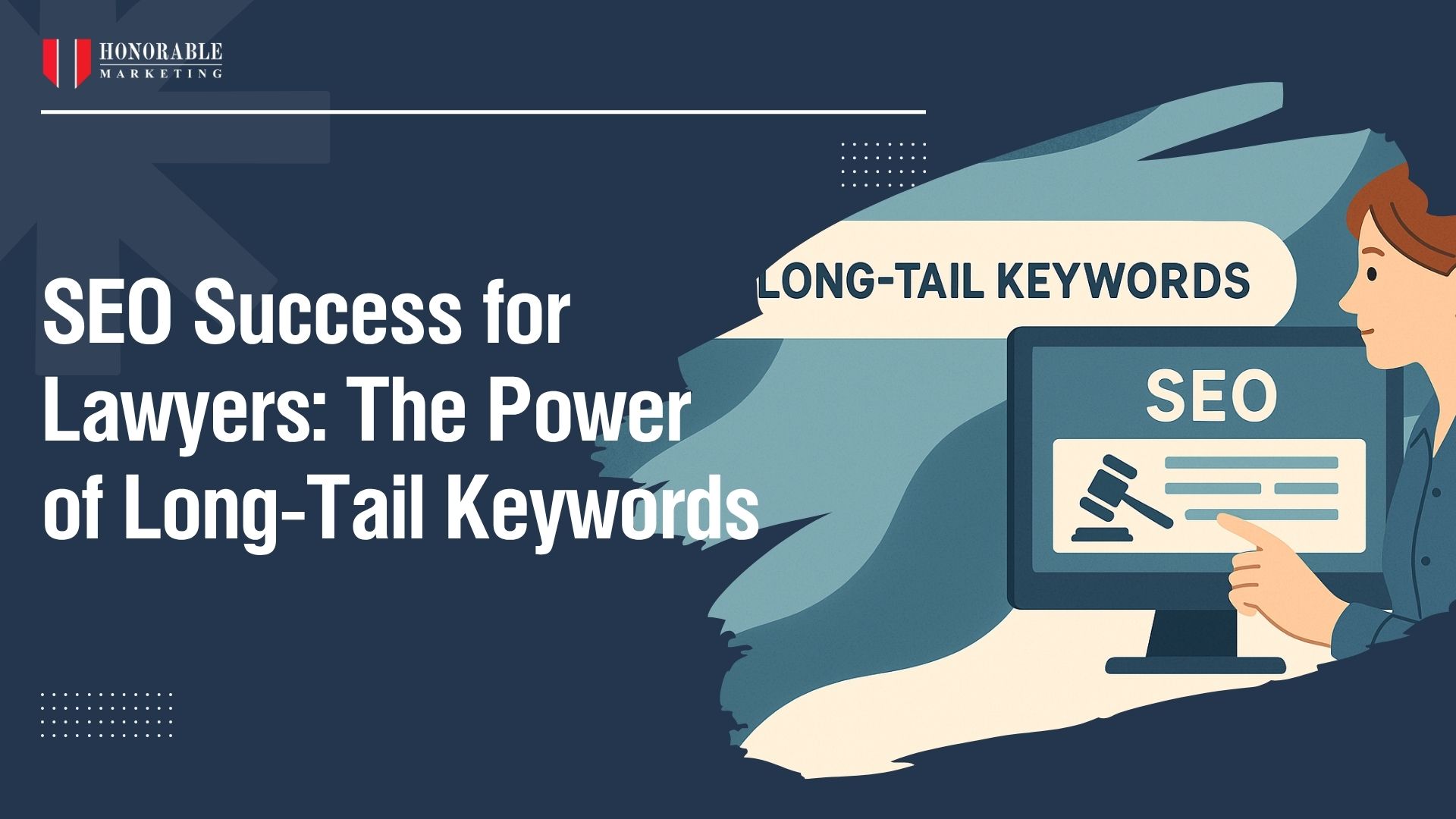July 28, 2025

When it comes to SEO for law firms, there's no room for guesswork. If you're looking to attract the right clients and dominate search results, you need a strategy that’s smart, targeted, and proven to work. At Honorable Marketing, we know that one of the most effective ways to get results is by using long-tail keywords.
Let’s get straight to it: long-tail keywords are specific, multi-word phrases that potential clients are likely to use when they’re closer to making a decision. Instead of targeting broad terms like “personal injury lawyer,” we focus on more specific phrases like “best personal injury lawyer in Philadelphia” or “experienced wrongful death attorney near me.” These phrases might not have the same search volume as broader keywords, but they bring in highly targeted traffic—people who know what they’re looking for and are ready to take action.

When you think about what you want from your content marketing, two goals usually top the list: traffic and conversions. Long-tail keywords can bring you both. They’re not just about getting more eyeballs on your site—they’re about getting the right eyeballs.
Paid advertising is great for immediate visibility, but it comes with a cost. You’re paying for every click, and those costs can add up quickly, especially in the competitive legal industry. But here’s the thing: if you gradually replace those paid clicks with organic traffic, not only do you save money, but you could see better results. Google’s Economic Impact Report states that organic search is five times more valuable than paid search.
Consider this: keywords that are 10-15 words in length tend to get 2.18x the amount of clicks compared to shorter, 1-2 word keywords. Additionally, 77.91% of organic conversions come from keywords that are 3+ words long. That’s a significant portion of traffic that’s more likely to convert into actual clients. By focusing on these longer, more specific phrases, you’re tapping into a segment of searchers who are not just browsing—they’re ready to take action.
One of the most critical aspects of using long-tail keywords effectively is understanding search intent. Google rewards content that best matches what users are searching for. When your content answers a specific query, you’re not just driving traffic—you’re driving conversions.
There are four main types of search intent:
For example, compare these two searches: “Philadelphia lawyer” vs. “best wrongful death lawyer in Philadelphia.” The second search clearly indicates that the person is closer to making a decision, and that’s where long-tail keywords shine. They signal search intent, showing that the searcher is well on their way to becoming a client. This is why using long-tail keywords in your content isn’t just a good idea—it’s essential.
At Honorable Marketing, we don’t just toss a few keywords into your website and call it a day. We use tools like SEMRush to research and identify the long-tail keywords that will drive real results for your firm. Here’s how we do it:
Despite their effectiveness, there are still some myths about long-tail keywords that need debunking:
If you’re serious about growing your law firm’s online presence, long-tail keywords need to be part of your SEO strategy. They might not be the first thing that comes to mind, but they’re incredibly powerful when it comes to attracting high-quality leads.
At Honorable Marketing, we understand the legal industry, and we know what it takes to stand out in a crowded market. We use proven strategies, backed by tools like SEMRush, to ensure your firm not only ranks but converts.
Ready to boost your firm’s SEO and start attracting the clients you want? Contact Honorable Marketing today, and let’s build a strategy that works for you.